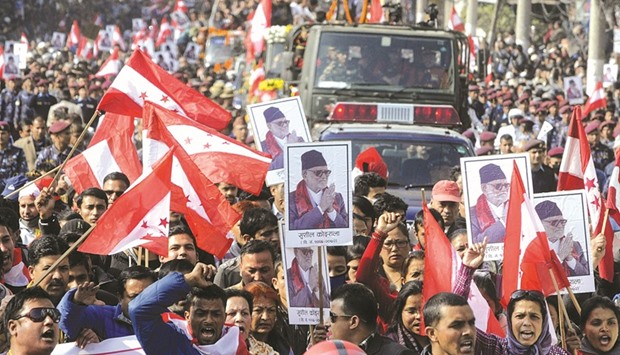Thousands of mourners attended the state funeral of former Nepal prime minister Sushil Koirala yesterday who was cremated with Hindu rites by the side of a sacred river in the capital, Kathmandu.
Koirala, 78, was a major contributor in the drafting Nepal’s first democratic constitution that, its authors hoped, would take the Himalayan country closer to stability and peace after years of conflict and the abolition of a 239-year-old
monarchy.
His death could make the granting of greater rights to ethnic minority groups under the constitution less likely as he favoured a more conciliatory
approach on the issues.
It may also end the Koirala dynasty that controlled the Nepali Congress party for most of the past six decades and produced four prime ministers.
Nepal, home to 28mn people, has been in turmoil since the new constitution was adopted in September as some ethnic groups launched often deadly protests against the charter saying it failed to give them a greater role in
government.
The leader, who quit as prime minister in October, died of a respiratory illness yesterday.
“We have lost a simple and honest leader at a time when many politicians are selfish and corrupt,” said mourner Ramesh Dahal on the banks of the Bagmati River.
Koirala, head of the centrist Nepali Congress party, the biggest opposition group in parliament, spent years in India and had close ties with Indian leaders. Indian Foreign Minister Sushma Swaraj flew in and paid homage to the leader on Tuesday.
Thousands of people, many carrying flowers, marched in a funeral procession around the capital with Koirala’s body mounted on a truck festooned with marigold garlands. Many carried placards with his pictures.

Nepali Congress workers hold photos and party flags during a rally for Sushil Koirala in Kathmandu yesterday.
